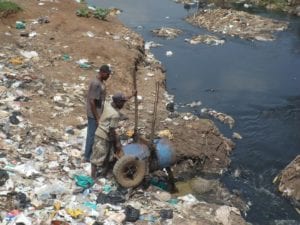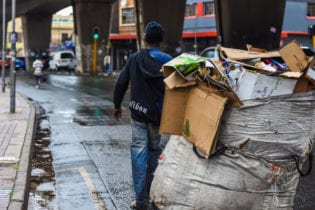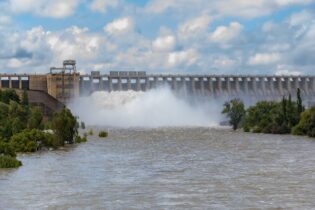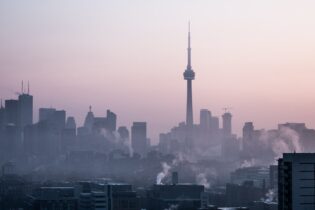Minister of Water and Sanitation Gugile Nkwinti has singled out pollution as the biggest threat to the South Africa’s water quality.
“A resolution to the thousands of informal settlements that stretch along South Africa’s rivers must be considered in order to deal with the problem of rampant water pollution in the country,” he said. Nkwinti was speaking at the launch of the Development Cooperation of Partners Platform as part of the department’s commemoration of World Water Day 2019 themed “Leaving no one behind, Water for all.”
Effecting change
Speaking at the Media Networking Breakfast to celebrate World Water Day in Pretoria, Minister Nkwinti said it was time communities experienced a change in behaviour and thinking around water issues – communities need to be trained and informed in order to understand the importance of water quality. “We need a major construction programme to remove communities that have built informal settlements along our rivers,” Minister Nkwinti continued. He has tasked senior managers in the Department of Water and Sanitation to visit various areas across the country to establish the quality of water. These results should then be shared with the Water Research Commission (WRC).
Tackling big polluters
Dr Desighen Naidoo, CEO of the WRC, identified polluted water as among the world’s top five commodities that posed a serious threat or risk to the global economy. Naidoo identified big businesses as among the biggest polluters, dumping untreated effluent into the country’s rivers. He called for municipalities to invoke the National Water Act to start billing big businesses for polluting the country’s rivers. He went on to state that water re-use and recycling would play an important role of assuring South Africa of its water security and welcomed DWS’ policy to establish Catchment Water Agencies in the country’s nine provinces.
Achieving SDG 6
Also speaking during the launch of the Development Cooperation of Partners Platform was Dr Cryton Zazu of the Stockholm International Water Institute (SIWI), who gave a progress report on the Sustainable Development Goal 6 (SDG 6). “Although only one in five countries globally are yet to convey progress towards achieving SDG 6, two African countries, namely South Africa and Botswana, have shown significant progress in this regard,” he said. Dr Zazu impressed upon the role of African countries in working towards achieving SDG 6 which calls for clean water and sanitation for all.







